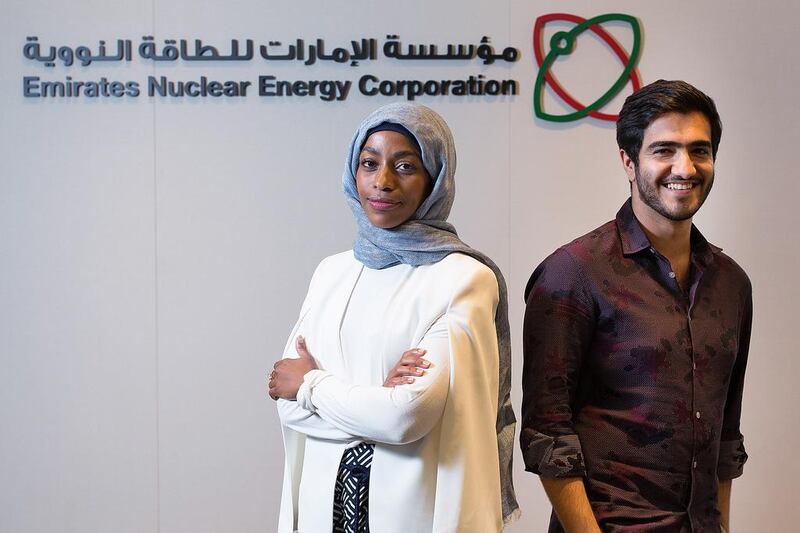SEOUL // To support her country’s foray into the atomic energy sector, Marwa Al Shehhi has looked further afield – to South Korea.
“Nuclear energy is interesting all over the world, and hearing that my country was adopting safe nuclear energy really made me proud. So I wanted to take part in that initiative,” said the student, who earlier this year started a two-year masters programme in nuclear engineering and power plant management at Kings Kepco International Nuclear Graduate School in Seoul.
“I thought coming to Korea would be much more beneficial for my country because we’re trying to have some kind of mutual understanding and learn from their side, their language, working in their nuclear power plants.”
The 30-year old headed east in February after completing her bachelor’s degree in biomedical engineering at Abu Dhabi Higher Colleges of Technology.
She is one of many young Emiratis sponsored by the Emirates Nuclear Energy Corporation (Enec) to study nuclear energy in the South Korean capital.
“Over the coming years our demand for power will increase, so we have to supply that demand,” Ms Al Shehhi said. “Nuclear can meet that calculated percentage of energy required for the whole country and I would like to be involved in the next steps for the UAE’s nuclear programme once I graduate.”
Students take a variety of courses to help them understand the inner workings of nuclear power plants, including physics, chemistry, management and mathematics. To fully experience their host country, they are also taught basic Korean.
Learning about nuclear energy, Ms Al Shehhi said, required dedication. “We’ve had almost 16 subjects in three months,” said the Ras Al Khaimah native who became the university’s first female student council president.
“It was intense but we made it. They will then give us three paths to follow, including pure management, technical or design.”
Fellow Emirati Omar Al Hashmi is halfway through his four-year bachelor programme in nuclear engineering at the Korea Advanced Institute of Science and Technology (Kaist).
“Since I was young, I was really interested in science,” said the 20-year-old. “When I graduated, I saw the UAE was trying to adopt renewable energy and the programme was interesting so I really wanted to be one of the first to apply to it.”
Having visited Korea previously, the Dubai native said he was impressed by the country’s universities. “This pushed me to want to learn from them. My father also encouraged me because he knows how advanced it is here.”
His aim is to become a nuclear engineer in the UAE. “I want to make my country proud and try to advance nuclear studies in the UAE. We’re trying to reduce our carbon emissions and this is one of the best ways to do it.”
Saeed Al Mheiri, another Kaist student, hoped to be an intern at the Korea Electric Power Corporation, the company constructing Abu Dhabi’s nuclear plant in Barakah, before joining Enec.
“The country is in great need of nuclear engineers before the construction of the nuclear power plant is complete,” he said. “I understood from Masdar how important and safe nuclear energy was, so I’d like to be one of the first pioneers in this field.”
Hamad AlKaabi, the UAE ambassador to the International Atomic Energy Agency, said cooperation between the two countries was strong.
“Our regulator works closely with Korean entities to support licensing of the plant and conducts regular visits to Korea for this purpose. Similarly, Enec has a strong presence in Korea through their office and permanent staff in Seoul,” he said.
“The objective is to support the smooth implementation of the nuclear project. Emirati staff are being trained in Korean facilities and students learn nuclear engineering at Korean universities, which is all part of ongoing cooperation programmes supporting the development of human resources for the UAE nuclear sector.”
cmalek@thenational.ae






